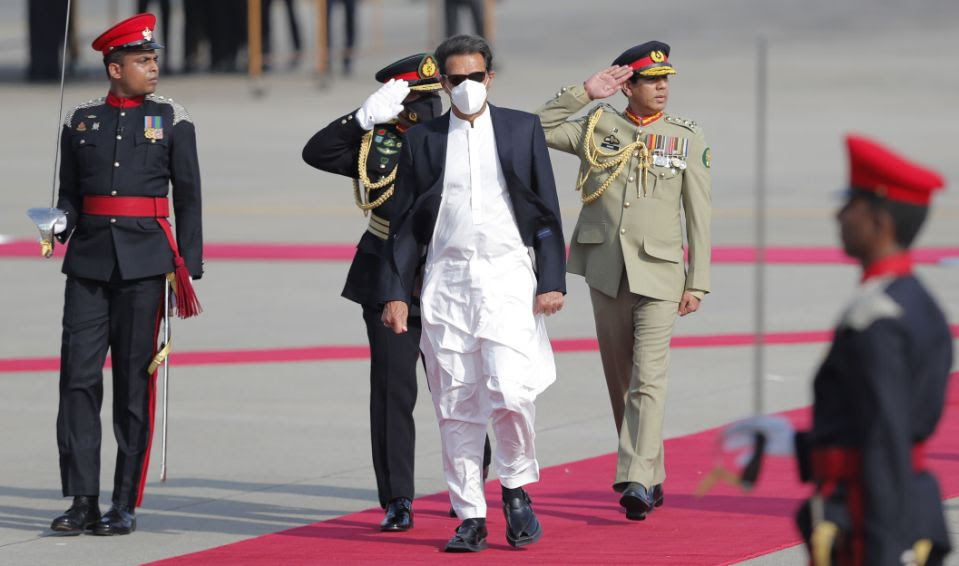

By — Shyamal Sinha
Visiting Pakistani Prime Minister Imran Khan has proclaimed his Muslim-majority nation a choice destination for religious tourism by Sri Lankans, most of whom are Buddhists.
Millions of people around the world embark annually on spiritual journeys to soothe their souls. Global religious tourism is one of the fastest growing segments in travel today. According to the UNWTO, 300-330 million tourists visit the globe’s most important religious sights every year.
Pakistan, with many important historical Buddhist sites, is noticeably trending in “religious tourism” due to its extensive heritage of Gandhara and Emperor Ashoka the Great.
Siddhartha Gautama, later revered as the Buddha, spread his teachings on the Indian subcontinent as long ago as 2600 years. Buddhism spread around Pakistan, Afghanistan, and India. In what is today modern-day Pakistan and other areas, the famous Buddhist ruler Ashoka the Great (304 to 232 BCE) spread Buddhism and Buddhist monuments and art throughout the region. (Gandhara Civilization 1500 BCE to 515 CE.)
Although, Buddhists who live in Pakistan only amount to a few thousand, more and more Buddhist tourists arrive each year. The most popular country for Buddhist tourists from Japan, China, Korea, and Thailand are Buddhist sites in India.
In talks with President Gotabaya Rajapaksa on Wednesday, Khan highlighted Buddhist heritage sites in Pakistan and stressed the building of cultural ties, the Pakistan Embassy said in a statement.
“Pakistan probably has one of the greatest Buddhist heritages in the world and we invite people from Sri Lanka to visit them,” Khan said a day earlier after meeting with Prime Minister Mahinda Rajapaksa.
Khan is making a two-day official visit to Sri Lanka which began Tuesday.
Buddhists account for more than 70% of Sri Lanka’s 22 million people. Ethnic minority Tamils, who are mainly Hindu, comprise about 15% and 9% are Muslims.
Khan said northern Pakistan is the center of the ancient Buddhist Gandhara civilization and that a 40-foot (12-meter) sleeping Buddha statue was recently discovered there.
Gandhāra was one of the so-called great regions (mahjanapada) of ancient India (a geographical concept that included many other parts of modern South Asia). Under the Mauryan empire (ca. 300–185 BCE), its capital was the city of Taxila. The center of ancient Gandhāra was the Peshawar basin in northwestern Pakistan which extends westward into Afghanistan along the Kabul River. This region exerted cultural and linguistic influence on what has been called “Greater Gandhāra” which encompasses the surrounding areas eastwards across the Indus River (such as Taxila), north towards the Swat Valley and Upper Indus, west towards Bamiyan and across the Hindu Kush into Bactria and the Oxus river valley.
The Indian emperor Ashoka (ca. 268–233 BCE) erected edicts in the region, some of which use the Gāndhārī language and the Kharosthi script later used by Gandhāran Buddhists. These edicts confirm the existence of Buddhism in Gandhāra during his reign. Kharosthi inscriptions have been found as far West as Wardak along the Kabul river, Uzbekistan (Termez) and Tajikistan (Anzhina-Tepe) and as far south as Mohenjo-Daro and Baluchista
“We are planning a Buddhist trail … with all the Buddhist great shrines and Buddhist places,” he said.
Prime Minister Mahinda Rajapaksa is the older brother of President Gotabaya Rajapaksa.
Pakistan may be the next big thing in Buddhist historical-site tourism, although for years it was held back by a bureaucratic visa system as well as the unstable security situation. With a renewed focus on Buddhist Tourism, this is changing, with a new streamlined visa process, the improved security situation, as well as the introduction of online visas.
This hidden potential for Pakistan, however, is extraordinary, since Buddhism one of the world’s largest spiritual paths, with over 520 million followers. Most Buddhists live in Asia and are relatively close in proximity to the country. Pakistan’s neighbour, China, has around 244 million Buddhist followers.
source – AP











